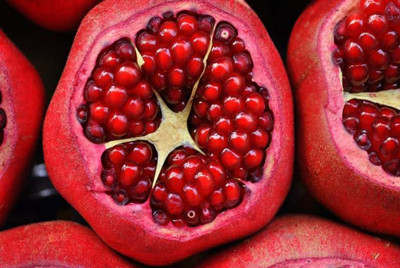
As part of European project Barbara, UA researchers have extracted innovative natural substances with antimicrobial effect, fragrance release, and new colors and optical effects.
Researchers at the University of Alicante, in collaboration with a dozen European partners, have developed natural compounds of high added value for the automotive industry or construction. The final product has been extracted from agricultural waste of lemon, pomegranate, broccoli and almond shells, sustainable and innovative substances with advanced properties such as antimicrobial effect, fragrance releasing, and new colors and optical effects.
According to Ph.D. in Chemical Sciences and coordinator of the UA work team M. Carmen Garrigós, these substances present a revolution for sectors such as car rental as they can be implemented in parts exposed to contamination by microbes such as handles and dashboards. In addition, from a circular economy approach, more sustainable pieces have been designed as a contribution to reducing the large amounts of agricultural waste that are generated every day.
The residues selected by the researchers for the development of these extracts have been defined by their natural properties. The colorants of lemon, broccoli and pomegranate have allowed them to obtain ranges of colors different from synthetic colors. In fact, as explained by Garrigós, a wide range of shades can be obtained by modifying the pH of a pomegranate. The essential oil of lemons provides antimicrobial properties and releases a scent, an interesting feature to some industries. Also, almond shell provides a wood-like appearance and natural reinforcement properties, i.e. it improves the mechanical properties of the material.
The researcher also reported that on a laboratory scale, once the natural compounds have been extracted from the remains of lemons, pomegranates, broccoli and almonds, they are added to filament spools for the 3-D printing of door handles and dashboards with improved characteristics and specific aesthetic properties.
The method of extraction and functionalization of natural substances has been developed by the Polymer and Nanomaterial Analysis Research Group (Nanobiopol) and the UA Vision and Colour Group in the context of the European project Barbara. Other project partners have worked with starch residues from maize to obtain more resistant and reinforced building materials.

